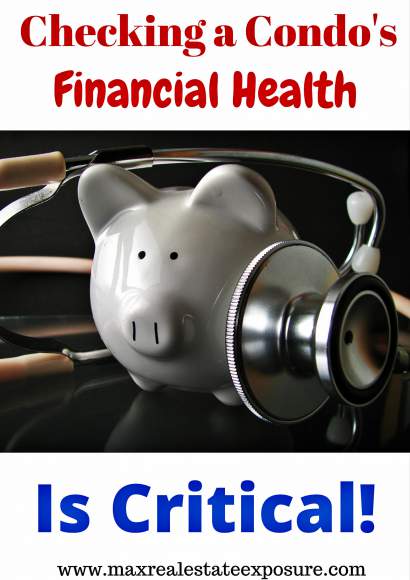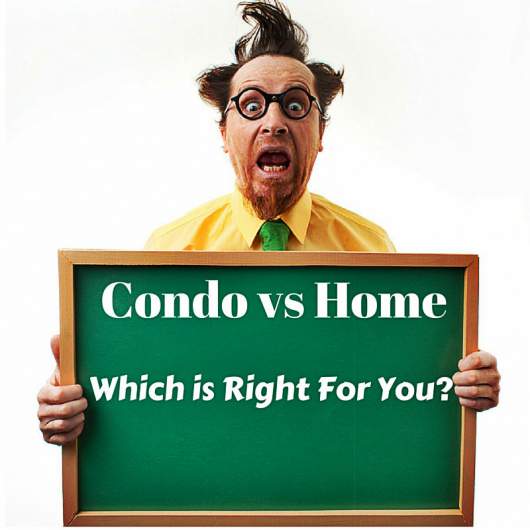 House vs. Condo: What Are The Differences
House vs. Condo: What Are The Differences
There are so many decisions to be made when you decide to buy your own home. For many buyers, the first initial choice must be between the two primary residential real estate purchases: a house vs. a condo.
Each has advantages and disadvantages, and the experience of living in each can vary greatly. Condominiums can be appealing to first-time buyers and older buyers.
The draw of a single-family home is evident for families. However, every buyer should know the fundamental differences between these properties before deciding.
When you have never owned either, you will probably ask yourself, should my first home be a condo or a house?
Depending on your situation, you may find that a condo or a home is the only reasonable option.
I have owned homes and condos for many years. I have also sold thousands over condominiums and houses over my long real estate career. After living in both and selling them, I know their strengths and weaknesses.
We will examine the pros and cons of a condo vs. a house. What you learn should give you a better understanding of which type of housing will be best for your needs.
What is a Single-Family House?
It sounds like a silly question, but it will give you a better understanding of the difference between a condo.
A single-family house is a freestanding home that is not tied to other residential properties.
Typically, single-family homes are located on their plot of land held by their owner, along with other structures like a detached garage. There is usually ample yard space with a single-family property.
Although it’s plausible, you’ll find row houses built side-to-side on small lots in densely populated cities. A more typical example is the suburban home on an oversized lot with a large lawn to mow, many trees, and landscape beds.
What is a Condo?
A condominium is a type of residential real estate that offers homeownership on an equivalent scale to apartment living. It may be found in a communal area or at the edge of multiple structures, and its size may vary markedly from house-sized dwellings.
An HOA or condo board is responsible for the appearance of a building and its common spaces – such as parking garages, swimming pools, clubhouses, and fitness centers. As with any other architectural design element, each complex may have different standards depending on size and location.
First-time homeowners, downsizers, and investors find condos an enticing option when purchasing a home. On the one hand, they offer more affordability than houses. However, they do not come without drawbacks. There will be monthly HOA fees to pay!
Condos should not be confused with townhouses, which are different in some respects.
Pros and Cons of a Condos vs. House
Let’s examine why you may want a condo rather than a house and vice versa. Purchasing a condo will be much different than buying a home.
Understanding HOA Fees and Their Impact
When considering the purchase of a condo, it’s essential to know the specifics of Homeowners Association (HOA) fees. I recommend grasping their long-term impact on your finances.
HOA fees are a staple of condo living. They cover everything from maintenance and repairs of common areas to potentially some utilities and amenities such as swimming pools, fitness centers, and security services.
While these fees can offer significant convenience by reducing personal maintenance responsibilities, they add a fixed monthly cost to your budget.
It’s crucial to assess whether the benefits align with your lifestyle. Will the fees be sustainable for your financial situation? Additionally, prospective buyers should investigate the HOA’s economic health. Poorly managed HOAs could lead to unexpected assessments or decreased property values.
The Role of Amenities in Your Lifestyle Choice
Amenities are pivotal in distinguishing condo living from owning a single-family house. Condos often come with access to amenities that might be cost-prohibitive or impractical in a single-family home, such as swimming pools, fitness centers, and community spaces for social events.
These amenities add convenience and recreational options to your lifestyle and offer a sense of community among residents. I recommend you evaluate which amenities align with your interests and lifestyle needs.
Remember, the cost of these amenities is typically factored into your HOA fees. Therefore, deciding if you will utilize them enough to justify the expense is essential. When I bought my condo in Florida, one of the perks was having a pool. It was easy to justify the cost because I wanted this in the hot climate.
It could be different if I bought in a place with harsh winters.
Whitney Knieper from Knieper Team Real Estate emphasizes getting the value from your fees.
It makes little sense to buy into a community that has many amenities you don’t use. It is like throwing money away. Before making a purchase, look at what the condo fees cover line by line. Will you be getting useful value from paying them? If not, it could make sense to purchase in a similar complex without these perks.
Navigating Resale and Rental Restrictions
The potential for resale and rental restrictions is critical when deciding between these two housing choices. Condos in managed communities may have specific rules regarding if and how you can rent out your unit.
These restrictions can impact your ability to generate rental income or even sell your property in the future. The only drawback of my Florida purchase was the restriction on rentals. However, since I had no plans to rent it out, it wasn’t a deal breaker.
The resale market for condos can be more volatile than for single-family homes. Factors like the HOA’s financial health and the appeal of communal amenities play significant roles.
Before purchasing, thoroughly review any covenants, conditions, and restrictions (CC&Rs) related to renting and reselling. I recommend you consider how these might align with your long-term plans.
Comparing The Size of Condos vs. Houses
In general, the size of a condo is more limited than a house’s. Of course, this is not always the case—plenty of two-bedroom homes with less square footage than large condos.
However, condominiums are forced to build up more than out, and you can expect them to be smaller than many houses you will look at. This is not necessarily a bad thing.
Depending on your needs, a smaller living space may be ideal. There is less area to clean and less space to accumulate clutter. One consideration buyers should understand is that a condo often has a restriction that prohibits an owner from creating another bedroom.
In other words, you might think the unfinished basement is the perfect opportunity to finish another bedroom. While you may be able to create the actual room, you might not be able to market it as a bedroom when you go to sell. Condo communities will put deed restrictions prohibiting selling a unit for more than the approved bedroom count.
Maintenance Will Be Easier With a Condo Compared to a House
Many buyers opt for reduced maintenance when choosing a condo over a house. Many who have owned a house no longer want to be bogged down with maintenance issues. Keeping up a manicured lawn and landscaping becomes less desirable as you age.
From experience, I can agree wholeheartedly that after purchasing three condominiums in different states and owning a house for many years,
 When you own a house, you are responsible for its upkeep, including all internal maintenance.
When you own a house, you are responsible for its upkeep, including all internal maintenance.
You can also have substantial external maintenance, including mowing the grass, weeding the flower beds, and keeping whatever plants you have alive. You can also expect to rake tons of leaves every fall in many parts of the country.
Some people enjoy the work, and others are willing to pay professionals to do it for them. When considering purchasing a condo, asking the right questions beforehand is vital.
Find Out What The Condo Fee Covers to Compare Costs
One of the critical questions you should find out before making an offer is precisely what the condo fees cover and what you are responsible for as a homeowner. The answer could surprise you.
When you own a condo, you pay fees to have the association maintain the grounds you share with the other owners. Often, the landscaping is designed for minimal maintenance.
You also have to pay for the maintenance of your particular unit, but you share the cost of upkeep for communal things like the roof for the condo.
Your overall workload for upkeep is typically less when you are in a condo than in a house.
Houses Beat Condos For Privacy
Single-family homes tend to win out in terms of privacy. A house is a self-contained unit generally separated by at least a little space from other houses.
In contrast, a condominium shares space with other units by definition. This is a significant differentiation point that every home buyer must personally decide on.
If you value privacy and want space from your neighbors, a house is always a better option.
However, there are some advantages to sharing a common area like you do with a condominium. You often have access to better amenities – a pool, sauna, hot tub, and fitness center – that would be cost-prohibitive to purchase privately.
You may also enjoy being closer to your neighbors as well. The trade-off is that you are unlikely to have as much privacy as you would with a house.
Understanding Financial Health Becomes Crucial With Condos
 Financial Health is one area where houses and condos vary greatly. Most of the time, with a condo, a homeowners association (HOA) will be in charge of managing the financial health of the neighborhood.
Financial Health is one area where houses and condos vary greatly. Most of the time, with a condo, a homeowners association (HOA) will be in charge of managing the financial health of the neighborhood.
The owners typically pay a monthly or quarterly fee for insurance, landscaping, trash, snow removal, general maintenance, and other services.
It is possible that when a homeowners’ association is not well funded, special assessments for significant amounts of money can be assessed. For example, if all of the roofs need replacement due to age.
A standalone home outside of an association generally does not have these considerations.
You own your home and don’t have to worry about whether your neighbors have become delinquent in paying their condo fees.
For this reason, it’s essential to understand some of the best advice when purchasing a condominium. The tips provided in the resource above can make a difference in whether you will be happy.
Financing is Different in These Housing Choices
Getting a mortgage on a home vs. a condominium can be vastly different. When buying a home, applying for a mortgage is pretty straightforward. You essentially get the type of loan you are looking for, and that is it.
You can choose the type of loan, conventional, FHA, or VA, if you qualify. With a condominium, you must verify upfront that you can use certain loan products.
For example, some condo developments are not FHA-approved. You might be asking yourself, why not? It’s a great question! Getting FHA approved does not cost much money, yet some condo associations do not understand the importance.
As someone interested in a condo, you should because few buyers are locked out from purchasing without the ability to get FHA financing. Not having FHA approval, of course, can affect the long-term value of your property.
The advantage to a buyer getting an FHA loan is that you only have to create a 3.5% down payment. When a condo development is not FHA-approved, it locks many buyers out.
When searching for a condominium to buy, ask your Realtor to check upfront whether the condo is FHA-approved. If an FHA loan is the type of financing you plan to use, you’ll need to verify it’s acceptable.
Location Can Be a Significant Factor
The location is one area where condominiums can offer an advantage, depending on your priorities. Because condos take up less room than homes, they can be located much closer – and even in – the city you want to live in. With the resurgence of urban living, condos have become far more popular.
Generally, full-size homes are less likely to be found in the middle of a city. You can expect to pay a pretty penny for them when they are. A condominium may be the only affordable option to own a home inside the city.
You may have a little less space than in a house, but for some, this is more than a reasonable exchange for access to all the perks of the location. Of course, if you want a single-family home in the suburbs, it will be less of a concern.
You Give Up Control in a Condo That You Don’t in Most Houses
 When purchasing a residential property, buyers choose to enter several different arrangements.
When purchasing a residential property, buyers choose to enter several different arrangements.
You may buy a home that is pretty much yours to do with as you will. You may also purchase a condominium in a neighborhood where you are part of a condo association.
When you purchase a condominium, it is almost always part of a community organization that oversees the upkeep of the units in your complex.
Whether you are purchasing a condo or a home, it is imperative to be thoroughly familiar with the pros and cons of an HOA.
Buying a single-family home without an HOA is probably the best option for people who want the most control.
You do not have the safety net that an HOA intends to maintain–ensuring the area retains specific standards, that home values remain as high as possible, and that all owners comply with agreed-upon covenants and rules.
In exchange for this, you can do pretty much anything you want to with your house – as long as it falls within the rules set by the county you reside in.
Build a tower, paint it all pink, or fill the yard with gnomes – it’s your home; do what you like.
Some Homes Have HOAs, Too
If you buy a home in a neighborhood with an HOA, you will be more limited in what you can do. You will have to observe the rules of the HOA, which will often control what you can do to your home’s exterior, how many cars you can park in your driveway, and whether you can park on the street.
However, you get the benefits mentioned above that may keep your neighborhood within specific quality standards.
Those buying a condo will be in the same position as homeowners in an HOA—there will be rules and membership dues.
There will also be an organization to oversee it all. With a condo, you are sharing even more than a regular HOA. You share the roof with your neighbors and probably some other common areas for which you will also share financial responsibility.
Associations can be good or bad depending on who is running them.
Getting stuck in a place with some rules you are uncomfortable with can make your life miserable. Make sure you determine whether the association is difficult to deal with before purchasing.
An excellent place to start is to ask the people who live there for their opinions. A local Realtor will probably know if a neighborhood has an unruly homeowners association.
Houses Are Usually More Expensive
Single-family homes are generally more expensive than condos. There are many reasons for this, and we’ve listed them above. You have more control, privacy, and space in a single-family home.
However, you may want to start owning a home, and condos are more in your price range. You may also be retiring and want to stretch your dollar and limit your yard work.
There are advantages to buying a condo, one of the main ones being cost. For various reasons, a condominium may be the perfect entry-level home.
Final Thoughts
Buying a condo vs. a house can be very different. Even when you go to sell, there will be differences. It is essential to make a choice that best suits your lifestyle. Many times in my career, I have seen clients make choices they later regret.
Additional Helpful Articles For Purchasing a House or Condo
- What are the best tips for buying a condominium? The Rochester Real Estate Blog shares helpful advice on buying condos.
- Will condominium living be right for me: Frederick Real Estate Online offers considerations you should consider before purchasing.
- What to know about living in a High Rise Condominium: find out what you should know about this housing choice via The Las Vegas Luxury Home Pro.
Use these additional resources to decide whether a house or condo will be a better housing selection for your needs.
About the Author: Bill Gassett, a nationally recognized leader in his field, provided the above Real Estate information on a condo vs. house, with the pros and cons of each. Bill has expertise in mortgages, financing, moving, home improvement, and general real estate.
Learn more about Bill Gassett and the publications in which he has been featured. Bill can be reached via email at billgassett@remaxexec.com or by phone at 508-625-0191. For the past 38+ years, Bill has helped people move in and out of Metrowest towns.
Are you thinking of selling your home? I am passionate about real estate and love sharing my marketing expertise!
I service Real Estate Sales in the following Metrowest MA towns: Ashland, Bellingham, Douglas, Framingham, Franklin, Grafton, Holliston, Hopkinton, Hopedale, Medway, Mendon, Milford, Millbury, Millville, Natick, Northborough, Northbridge, Shrewsbury, Southborough, Sutton, Wayland, Westborough, Whitinsville, Worcester, Upton, and Uxbridge Massachusetts.

